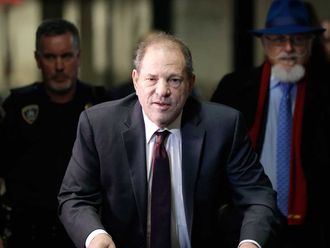
Two years after pop icon Prince died of an overdose, prosecutors said Thursday they would not file any criminal charges and announced a settlement with a US doctor who prescribed powerful painkillers for the star.
A prosecutor in Prince’s home state of Minnesota said it remained unclear how the Purple One obtained counterfeit pills containing fentanyl, an intense opioid, that ultimately killed him.
“The bottom line is we simply do not have sufficient evidence to charge anyone with a crime related to Prince’s death,” Mark Metz, the attorney of Carver County, home to Prince’s Paisley Park estate, told reporters.
After searches, Metz said that Prince had bottles of pills marked with common commercial pain relief labels such as Bayer and Aleve and that the singer thought he was taking Vicodin — but was in fact taking the more potent fentanyl instead.
Metz acknowledged that someone gave Prince the counterfeit pills, saying: “There is no doubt that the actions of individuals around Prince will be criticised, questions and judged in the days and weeks to come.”
But he added: “Suspicions and innuendo are categorically insufficient to support any criminal charges.”
Prince died on April 21, 2016 at age 57 — stunning fans and bandmates who recall the singer as an outward model of health who rarely drank alcohol, ate a vegetarian diet and would kick out musicians who abused drugs from his studio.
But the pop star — so versatile he could literally play guitar blind-folded behind his back — secretly suffered from pain stemming from a hip operation.
In his death, Prince became the most famous face of the epidemic of painkiller abuse in the US.
Moments before the announcement, federal prosecutors said that they had reached a settlement with Minnesota doctor Michael Schulenberg.
The physician had given pills to Prince by making out prescriptions to Kirk Johnson, a longtime associate of the artist who managed Paisley Park.












